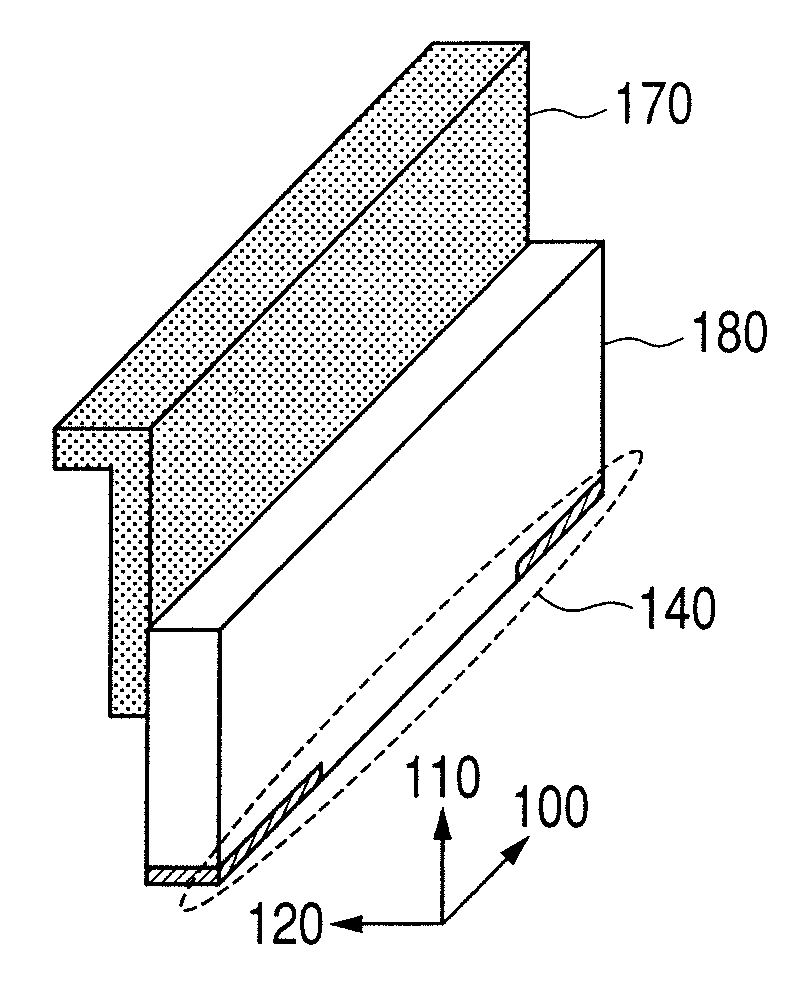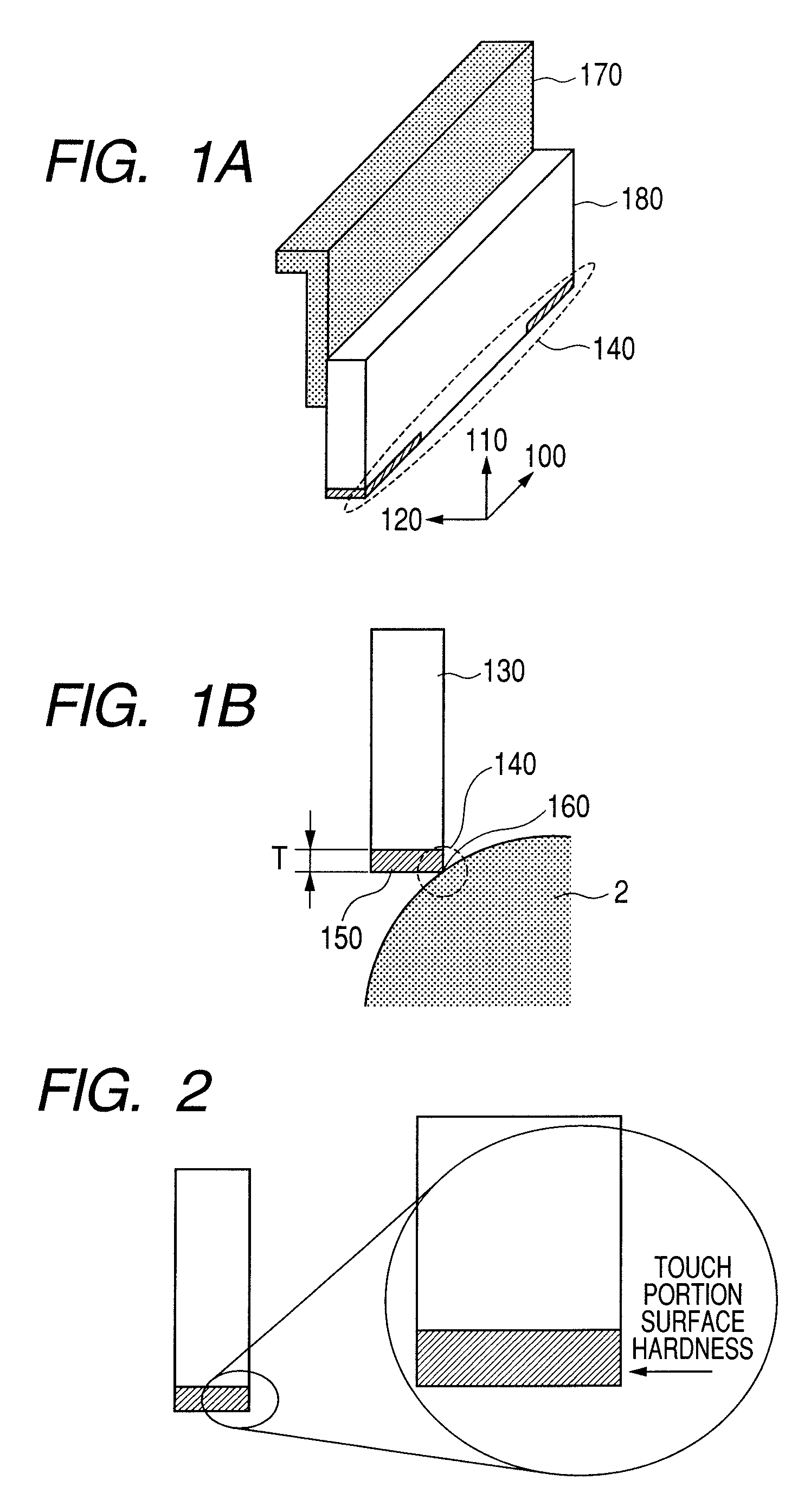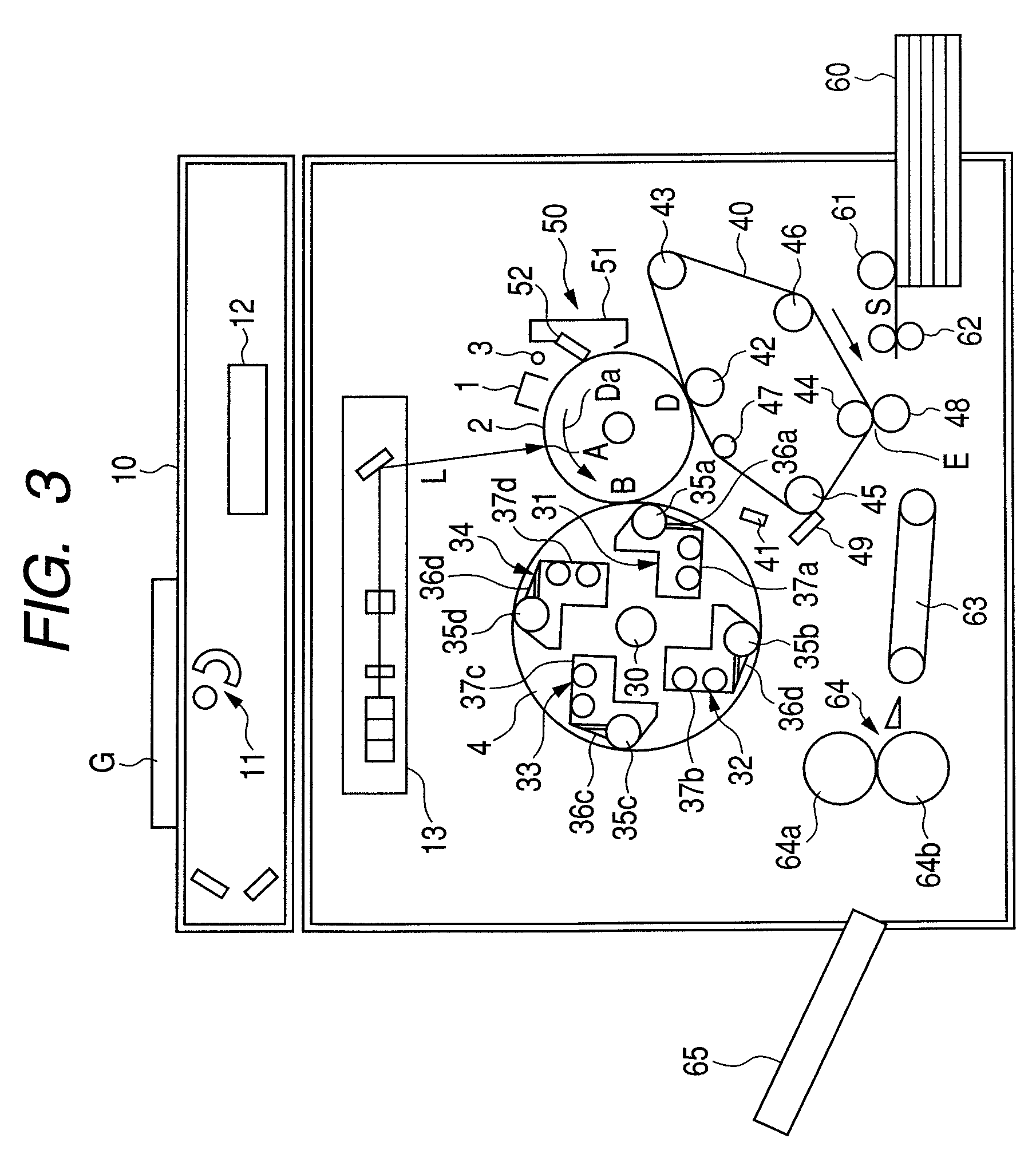Electrophotographic cleaning blade, process for producing electrophotographic cleaning blade, and electrophotographic apparatus
a technology of electrophotography and cleaning blades, applied in electrography/magnetography, optics, instruments, etc., can solve the problems of blade turning up, photosensitive drum driving torque being required to be large, and the coefficient of friction between polyurethane resin and the photosensitive drum is so larg
- Summary
- Abstract
- Description
- Claims
- Application Information
AI Technical Summary
Benefits of technology
Problems solved by technology
Method used
Image
Examples
example 1
[0107]A prepolymer (NCO %: 7%) was prepared from a butylene / hexylene adipate type polyester polyol having a weight average molecular weight of 2,000 and MDI. In this prepolymer, a mixed cross-linking agent of 1,4-butanediol and trimethylol propane (mass ratio: 65:35) was so mixed as to be in a hydroxyl group / NCO molar ratio of 0.95 to prepare a urethane raw material. Using this urethane raw material, a blade (IRHD: 75°) formed from a polyurethane resin in a thickness of 2 mm was made by molding. This blade was made by molding using a centrifugal molding machine. In this molding, the raw material was cured under the conditions of a curing temperature of 130° C. and a curing time of 30 minutes. This blade was bonded to a metal plate to produce a cleaning blade. In this case, the margin for bonding the blade to the plate metal was 5 mm, and the blade was so cut as to be 10 mm in length in its free-length direction.
[0108]The cleaning blade obtained was preliminarily dried. After prelimi...
example 2
[0110]A cleaning blade was produced in the same way as in Example 1 except that the time of keeping the blade in contact with the isocyanate compound MTL was changed to 100 minutes.
example 3
[0111]A cleaning blade was produced in the same way as in Example 1 except that the urethane raw material was so prepared as to have a hydroxyl group / NCO molar ratio of 0.80, the time of curing in the molding using a centrifugal molding machine was changed to 20 minutes and the time of keeping the blade in contact with the MTL was changed to 100 minutes.
PUM
 Login to View More
Login to View More Abstract
Description
Claims
Application Information
 Login to View More
Login to View More - R&D
- Intellectual Property
- Life Sciences
- Materials
- Tech Scout
- Unparalleled Data Quality
- Higher Quality Content
- 60% Fewer Hallucinations
Browse by: Latest US Patents, China's latest patents, Technical Efficacy Thesaurus, Application Domain, Technology Topic, Popular Technical Reports.
© 2025 PatSnap. All rights reserved.Legal|Privacy policy|Modern Slavery Act Transparency Statement|Sitemap|About US| Contact US: help@patsnap.com



